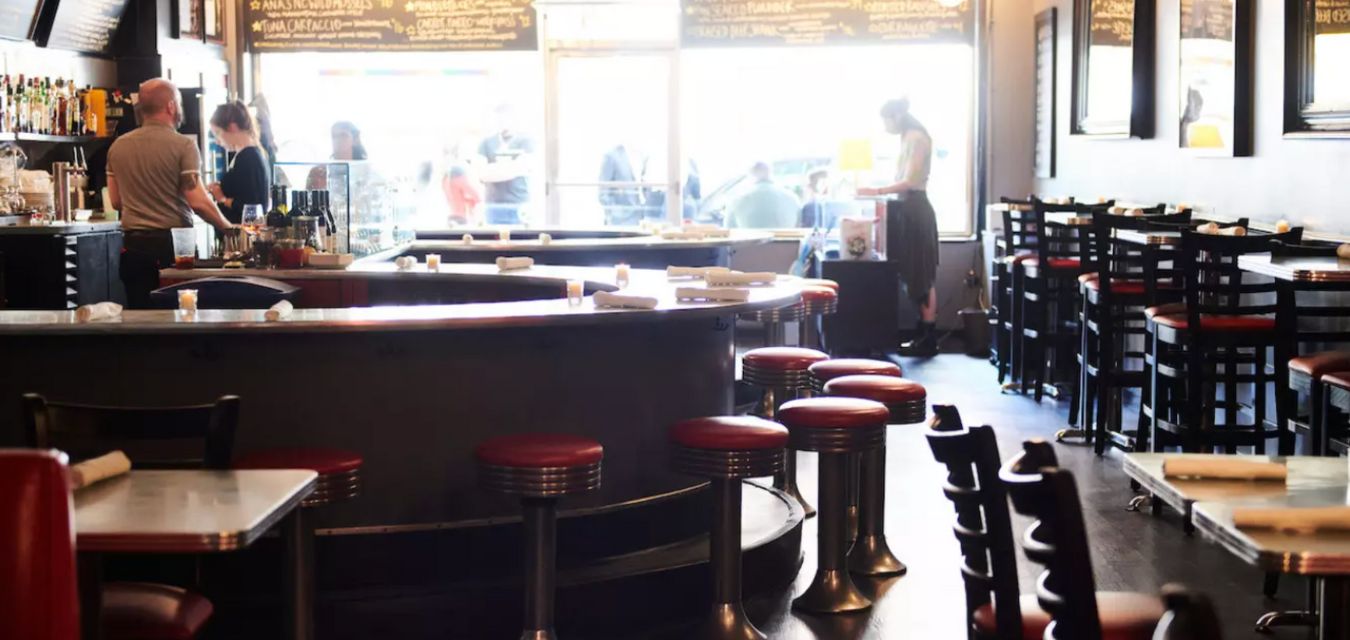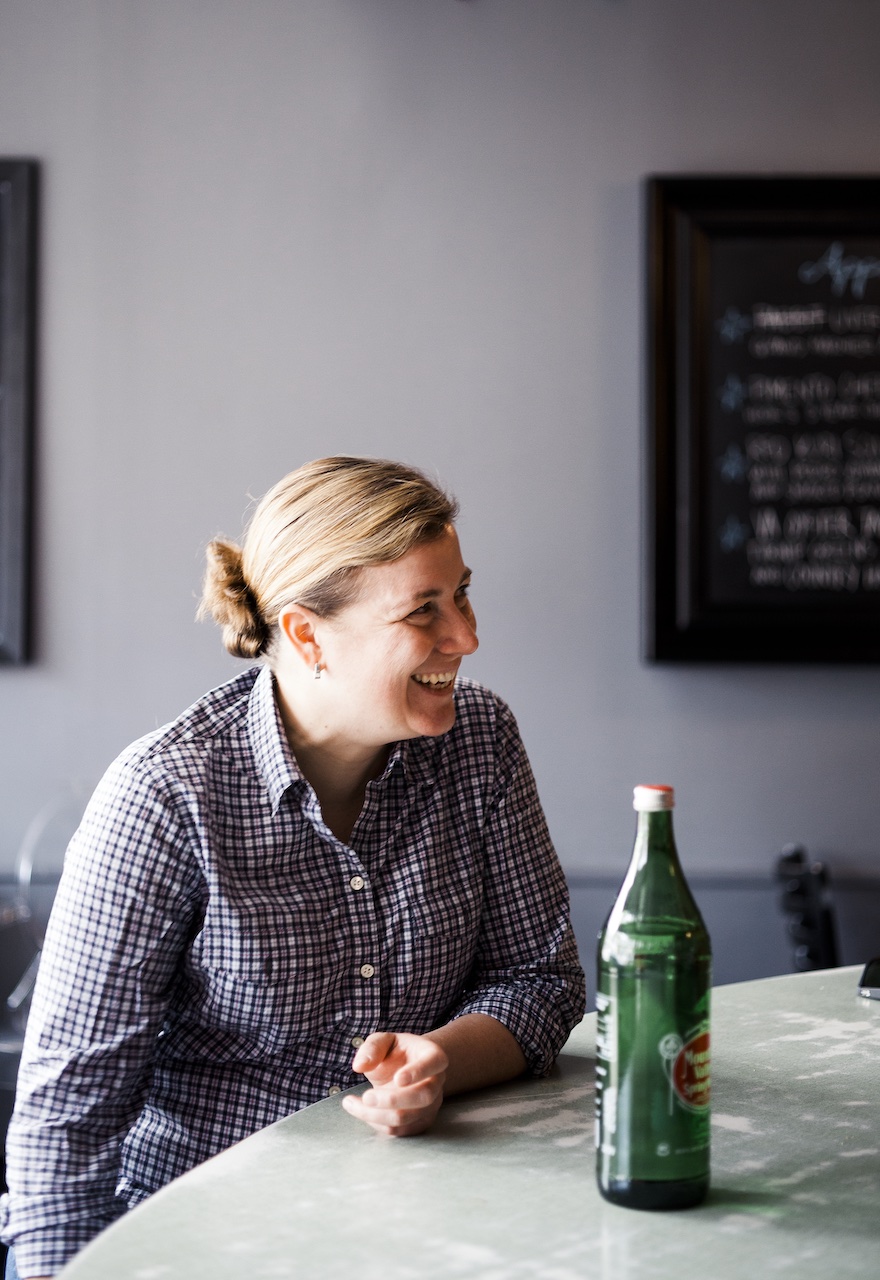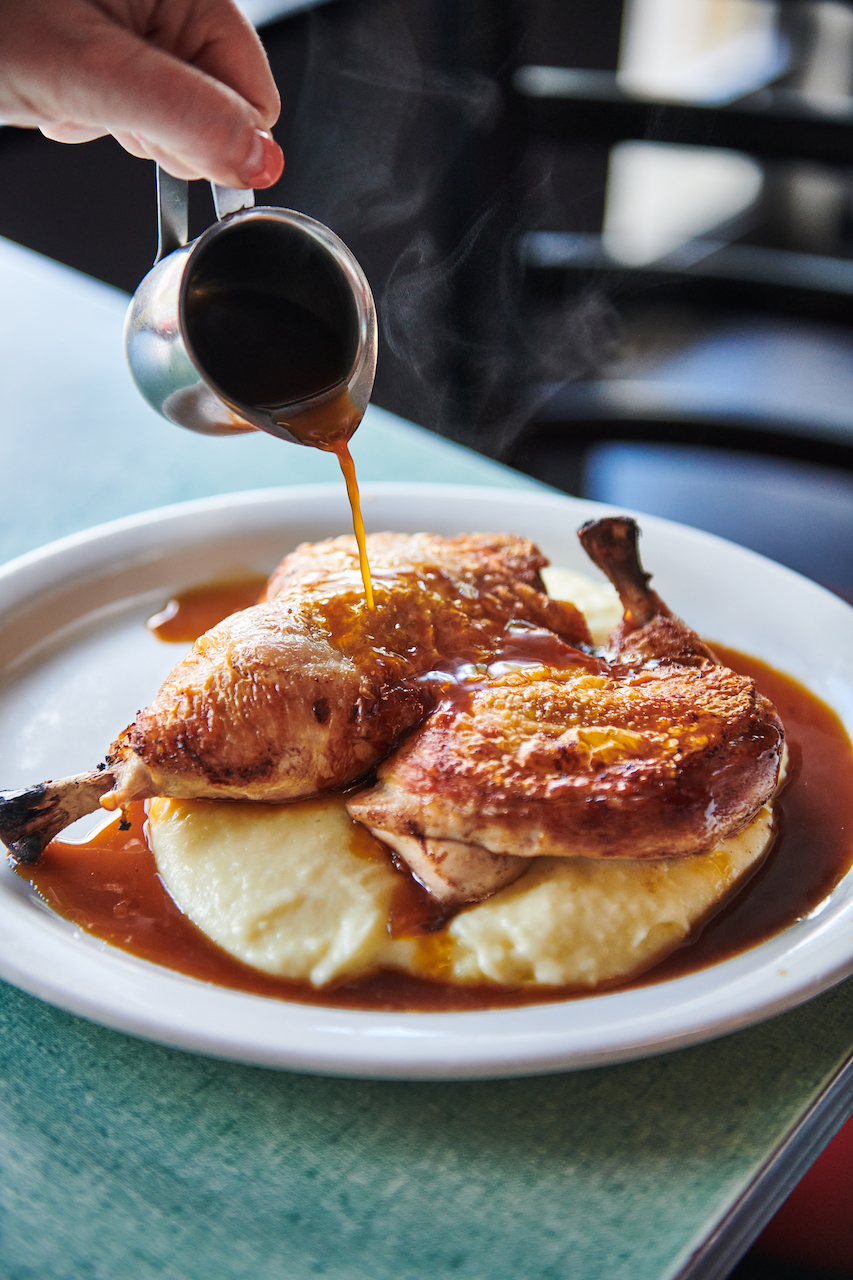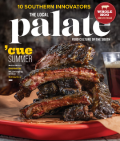

When chef Ashley Christensen was approached about taking over Raleigh, North Carolina’s Poole’s Diner space, she did so knowing that the restaurant meant a lot to generations of people, including her father, who once ate lunch there every day when it went by the name Poole’s Luncheonette. It first opened in 1945 as Poole’s Pie Shop, and Christensen herself knew it as Vertigo Diner, a double-horseshoe bar space where she eventually started working as a bartender. Fast forward to 2007, when the then-owner called her to say she was looking to sell: “I met her to look at the space, and even through the neon green on the walls and the dusty tchotchkes, I knew that I wanted it,” Christensen wrote in her cookbook, Poole’s: Recipes and Stories from a Modern Diner (Ten Speed Press, 2016).
Today, Poole’s is the anchor of a small empire of restaurants owned by Christensen, as she’s known, but remains at the core of her business values—which includes running welcoming spaces where everyone is a guest. It launched Christensen’s role as a community organizer, as well as countless hospitality careers. As Christensen and the team honor their 15 years in business, we checked in to hear about how the past continues to shape her present and future.
Reflecting on 15 Years of Service at Poole’s Diner
TLP: What has been a part of Poole’s Diner since day one?
AC: The chalkboard menus and the basic structure of the menu experience have remained in place since day one.
TLP: How has the menu at Poole’s evolved? What has stayed the same?
AC: Some dishes have been on since the very early days (chicken liver mousse, aged cheddar pimento, the Bibb salad, and the mac au gratin). These dishes have seen small tweaks, but all fairly subtle. The style of the “mains” evolved from more of a meat and sauce/condiment style to having more of a stand-alone presence. Should folks choose to order just a main, it could certainly be a meal. New traditions found their way into seasonal rotation (like the tuna tartare, the whipped corn soup, the watermelon avocado salad, and the workhorse “next-to” of oyster mushrooms with sherry cream and whatever vegetable of the minute we plug in based on the season).
Though the expression of the menu always stayed very identifiably “Poole’s,” there have been many beautiful dishes and menu tweaks based on the ideas of the chefs and cooks in the kitchen, translated into the vibe of Poole’s.
TLP: Give us a snapshot of what Raleigh’s dining scene was like in December 2007?
AC: It was fairly sleepy. There were great places peppered in and around downtown. The cool thing is most of those places still exist (Second Empire, Five Star, 42nd St., Player’s Retreat). It was a time of revitalization for downtown Raleigh, so there was lots of construction (parking decks, the new convention center/downtown Marriott).
I think of this time as evidence of a promise later kept for growth and energizing of this great city. Weekend and after-5 p.m. foot traffic was increasing (though slowly) and retail in downtown was beginning to (again, slowly) become more present.
TLP: What role does Poole’s Diner play in the restaurant scene as well as with the greater community today?
AC: Our growing restaurant scene continues to make me very proud to live and work here. Poole’s is certainly a part of this scene, but the energy is shared among the whole community. Many folks have shared their time and talents with us at Poole’s and then gone on to open something of their own or to lean into another great project. Many people stayed with us and continue to grow with our company as contributing members of the evolution of AC Restaurants. As for the greater community beyond hospitality, I think Poole’s has often served as a space for community gatherings, both socially and for a number of wonderful community causes.

TLP: You’ve opened a growing number of other restaurants and businesses since then. How and when does Poole’s fit into your personal time and focus?
AC: Poole’s is a space I love to be in and to experience, both as its owner and as a guest. Much of the design of the experience we provide at Poole’s is based on how I love to share food with friends in my own home. It will always be tremendously personal to me, and it’s still one of the most comfortable places for me to spend time in.
TLP: What would you say is the secret in the sauce to Poole’s longevity?
AC: Listening—the Poole’s crew and the community of Poole’s regulars and supporters care deeply for that place. As I matured as an owner, I learned that feedback is a tremendous gift. I’m grateful for all of the thoughts and ideas that have been shared with us, and how they have influenced the practices of Poole’s.
TLP: What are some of your most memorable, or proudest moments at Poole’s?
AC: I am extremely proud of owning a restaurant where people are proud to work, and that it shows in how they engage with each other, and with the work. That said, one memorable night would have to be the night Robert Plant walked into Poole’s… I remember so vividly everything about that night. What a gem of a human. Next, I would say just feeding musicians in general. I think food and music have so much in common in how they make people feel, and it’s neat when two crafts share that. There is a really neat level of appreciation in both directions of that relationship. We’ve fed and broken bread with so many of our musical heroes, and it turns out it was pretty special to them as well.
TLP: What are your hopes for the future of Poole’s?
AC: My hope for the future of Poole’s is actually more so my commitment and promise to Poole’s… and that is that every time I walk into this space (and any of our other spaces), I will be open to changes in support of its evolution, and as a means of ushering these places to remain timeless and relevant to our teams and to our guests.






